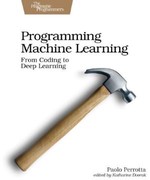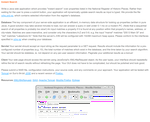Receiving Feedback Is A Skill
Programming Machine Learning
The programming puzzle that landed me my job
What to look for when hiring
Visual and HTML Testing for Static Sites
Zing LED Smart Night Light
Migrating From Wordpress to Hugo
What’s wrong with Milan’s Open Data initiative
I spent some time during the last weeks playing with the Open Data published by the City of Milan. I did not have a clear goal in mind, except for building some interesting visualization of the Public Transport coverage of the city grounds.
A quick exploration of the dataset seemed to be encouraging: while most of the data was relatively useless, some datasets were indeed promising and worth spending some time. While at the end of the week I was able to get the result I had in mind (the heatmap below), I was left with that lingering feeling of dissatisfaction that accompanies me when I see good initiatives that can be dramatically improved by changing a few specific features.
Appsterdam Guru Session: Google App Engine for beginners
One of the things I was not expecting when I moved to Amsterdam was its active and vibrant tech community. Appsterdam, a non-profit organization focused around aggregating people with a passion for technology, is probably one of the central forces in this movement.
In my year in Amsterdam I had been to a few meetups organized by people from Appsterdam and always came back home having learned something new. This is why when my colleague Matt (who himself is quite an active Appsterdam member) talked me into presenting a guru session on Google App Engine, I saw that as an opportunity to return the favor.
Presenting Professional Invaders
A few weeks ago I attended The Next Web Conference in Amsterdam and joined a bunch of fellow programmers for another edition of the Kings of Code Hack Battle, the same kind of event as the one where Bring Your Own Music was born.
Following the usual schedule, after a brief presentation from the API partners (Spotify, SendGrid, Braintree, Deezer, Pearson, Nokia, Rebtel, Bol.com, Smart TV Alliance and LinkedIn), all the attendees started evaluating ideas about what to build.
I teamed up with Alexander, a friend of mine I already had the chance to work with back in the days when I when I was consulting.
Having LinkedIn among the sponsors seemed to encourage us to build serious applications for serious professionals, but after discarding a few alternatives that would have been better projects for a Startup Weekend than a hackathon, we decided to take the opposite direction: building the silliest possible thing with the APIs we had access to.





